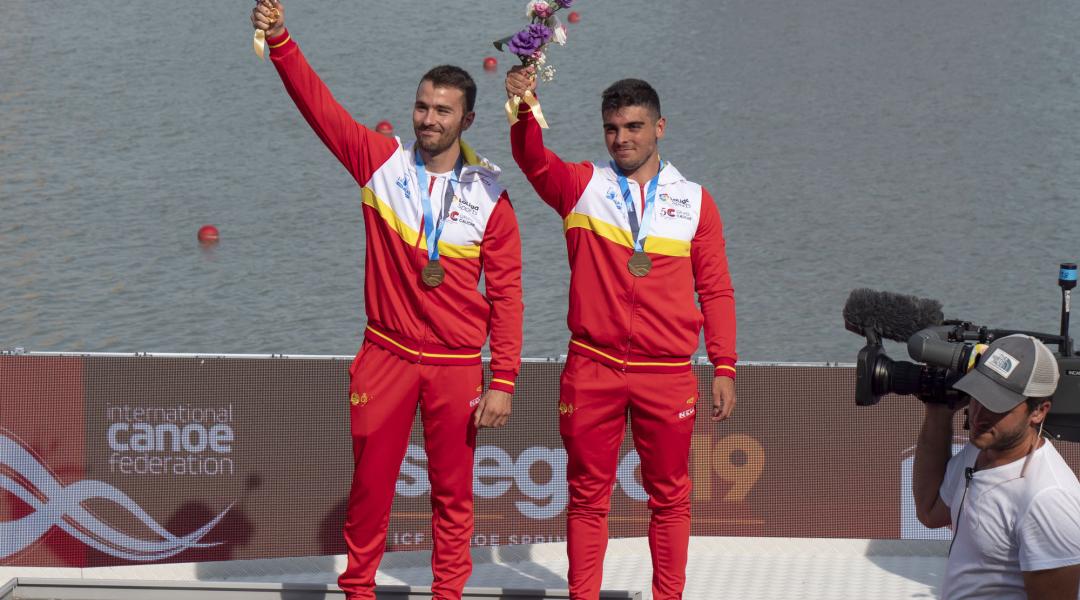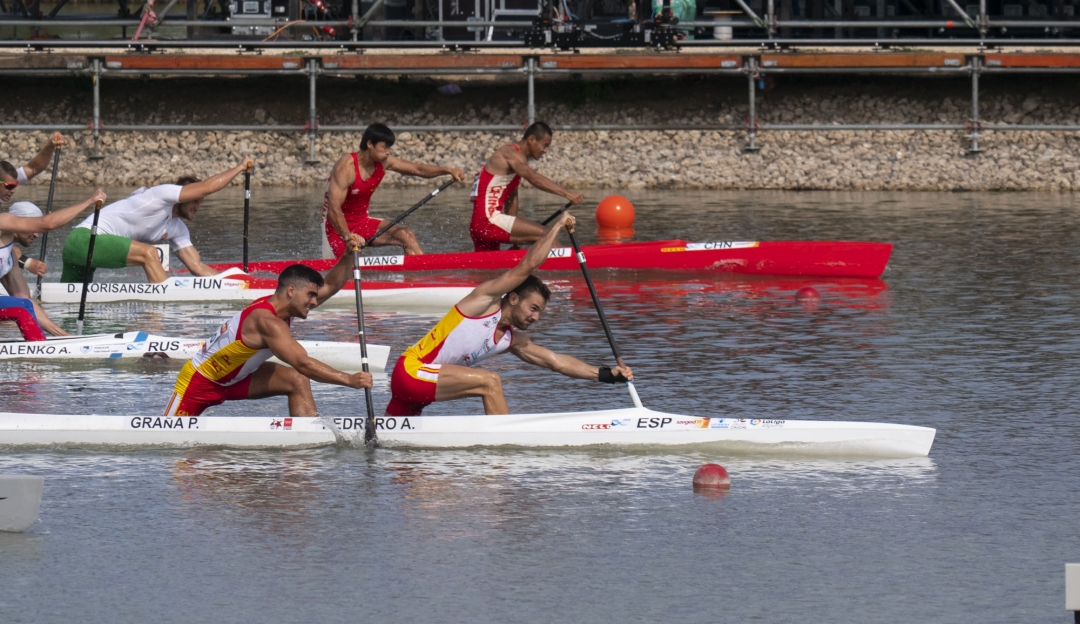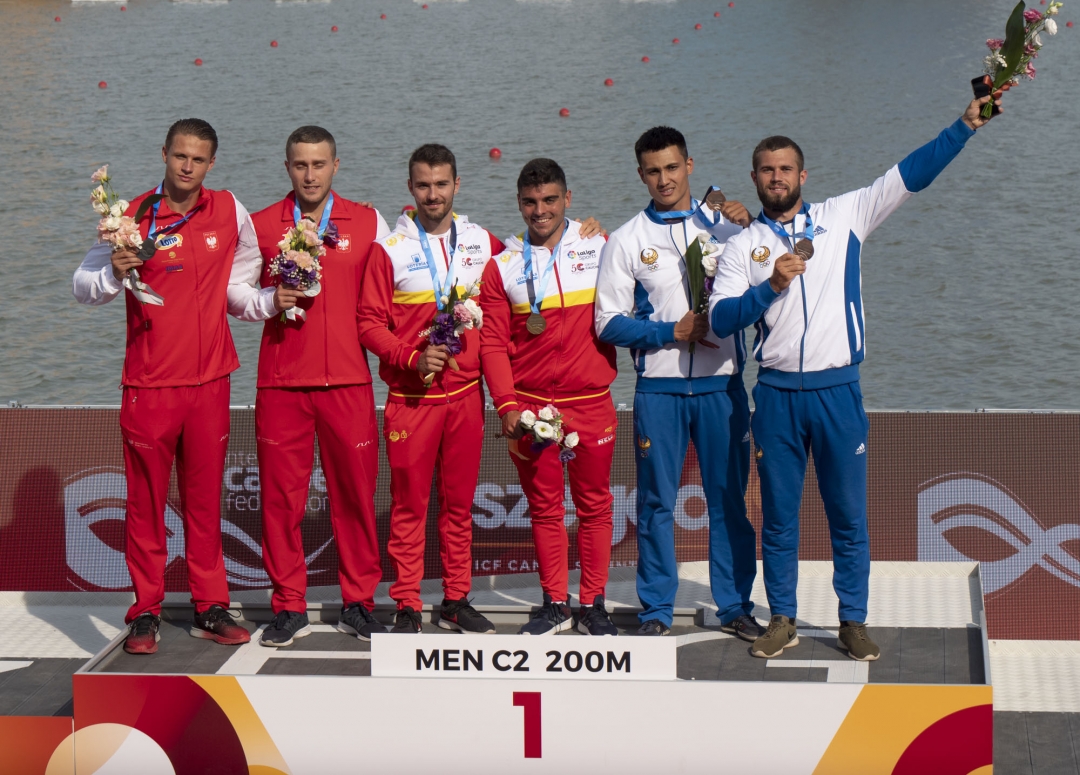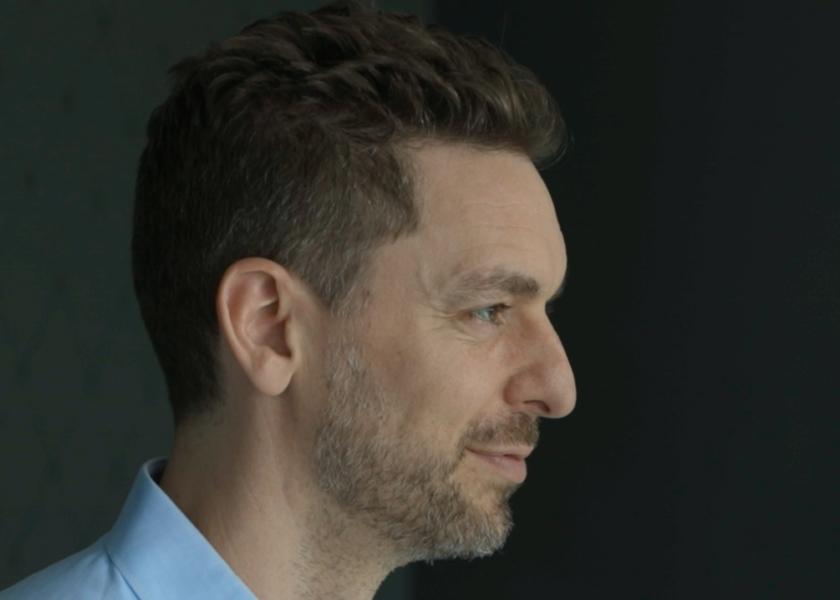Pedrero and Graña
Paddle to the Gold Medal

If the World Cup in Hungary has made anything clear, it is that Spanish canoeing is in wonderful shape. Alberto Pedrero and Pablo Graña top the medal table, finishing world champions in the C2 200 category, while the tally is completed by three silver and three bronze medals, plus four tickets for the Olympics.
The Spanish display cases have been filling up with paddling cups in recent years. On different occasions and in several categories, David Cal and Saúl Craviotto have turned canoeing into an absolute gold mine for Spanish sports. And it looks like their example is being followed, as new names are starting to emerge in the canoeing world. Like, for instance, youngsters Alberto Pedrero and Pablo Graña, who paddled to the gold medal at the ICF Canoe Sprint and Paracanoe World Championships in Hungary: “We’re in a state of shock. We were over the moon when we realized what we’d achieved,” says Pedrero.
Pedrero and Graña became men on the waters of Szeged, and lived up to the high-running expectations they had generated. Hugo Alberto Pedrero (Madrid, 1995) and Pablo Graña (Cangas, 1999) were 0.12 seconds faster than the Polish boat in the Men’s C-2 200 metres category, tearing off the “future stars” label they arrived with at the World Cup in Hungary, held between August 23 and 25. Having both, separately, finished runners-up in different world cups in the sub-23 category, the two joined forces last May, and it turned out to be a match made in heaven. “We started training together just three weeks before the World Cup, but we clicked since day one,” says Pedrero. “After all the work we’ve done, it couldn’t have gone better,” Graña adds.
There is a bittersweet side to Graña and Pedrero’s success, however: their category will not be represented at the Tokyo Olympic Games. Both paddlers’ specialty are sprint races, which, unfortunately for Spanish sports, are not part of the Olympic program. Graña, a product of the unfailing Galician school, shrugs with resignation: “It is a shame, but that’s how it is.” The same goes for Toni Segura and Sete Benavides, who won bronze in Hungary in the C2 500 category but won’t be able to repeat that feat in the capital of Japan, next summer.
Seven medals and four qualifications for Tokyo
Graña & Pederero’s gold was not the only metal the Spanish canoeists brought back from Szeged. The K4 500 team, Spain’s most famous boat led by Saúl Craviotto and further manned by Carlos Arévalo, Marcus Cooper Walz, and Rodrigo Germade, finished runner-up in their category, as did Paco Cubelos and Íñigo Peña’s K2 1000 canoe, and Pelayo Roza and Pedro Llenín’s K2 500. Furthermore, there were three bronze medals, thanks to Carlos Garrote and Teresa Portela, both in the K1 200 category, and the aforementioned duo formed by Toni Segura and Sete Benavides (C2 500). A total of seven medals that guarantee us four canoes competing at next summer’s Olympic Games in Tokyo.
Spanish canoeing is on a roll with yet another win. Nuria Vilarrubla just added a new gold to the Spanish medal count in the C1 category at the Canoe Slalom World Cup held in Markkleeberg, Germany, from 30 August to 1 September. The Catalan paddler beat her rivals with a perfect descent, almost two years to the day she last won a medal. Vilarrubla emphasized she feels “much more confident” now after winning again, and, looking to the future, she added: “I would love to go to the Olympics, I’m dreaming of it, but there is still a long way to go.” Unfortunately, Spanish canoeist Maialen Chorraut (gold in Rio 2016 and bronze in London 2012) and Ander Elosegi (Olympic diploma in Beijing 2008 and London 2012) were unable to add new wins to the Spanish canoeing track record, finishing 7th and 9th in the K1 and C1 categories respectively.




